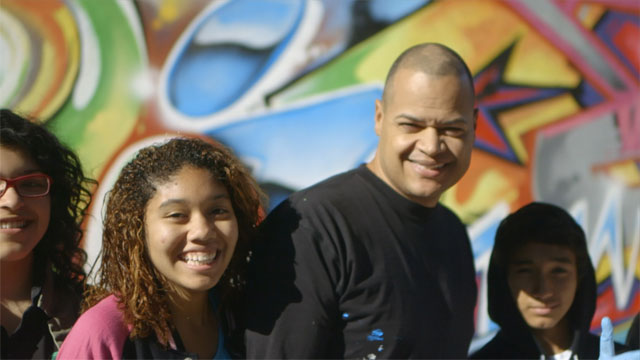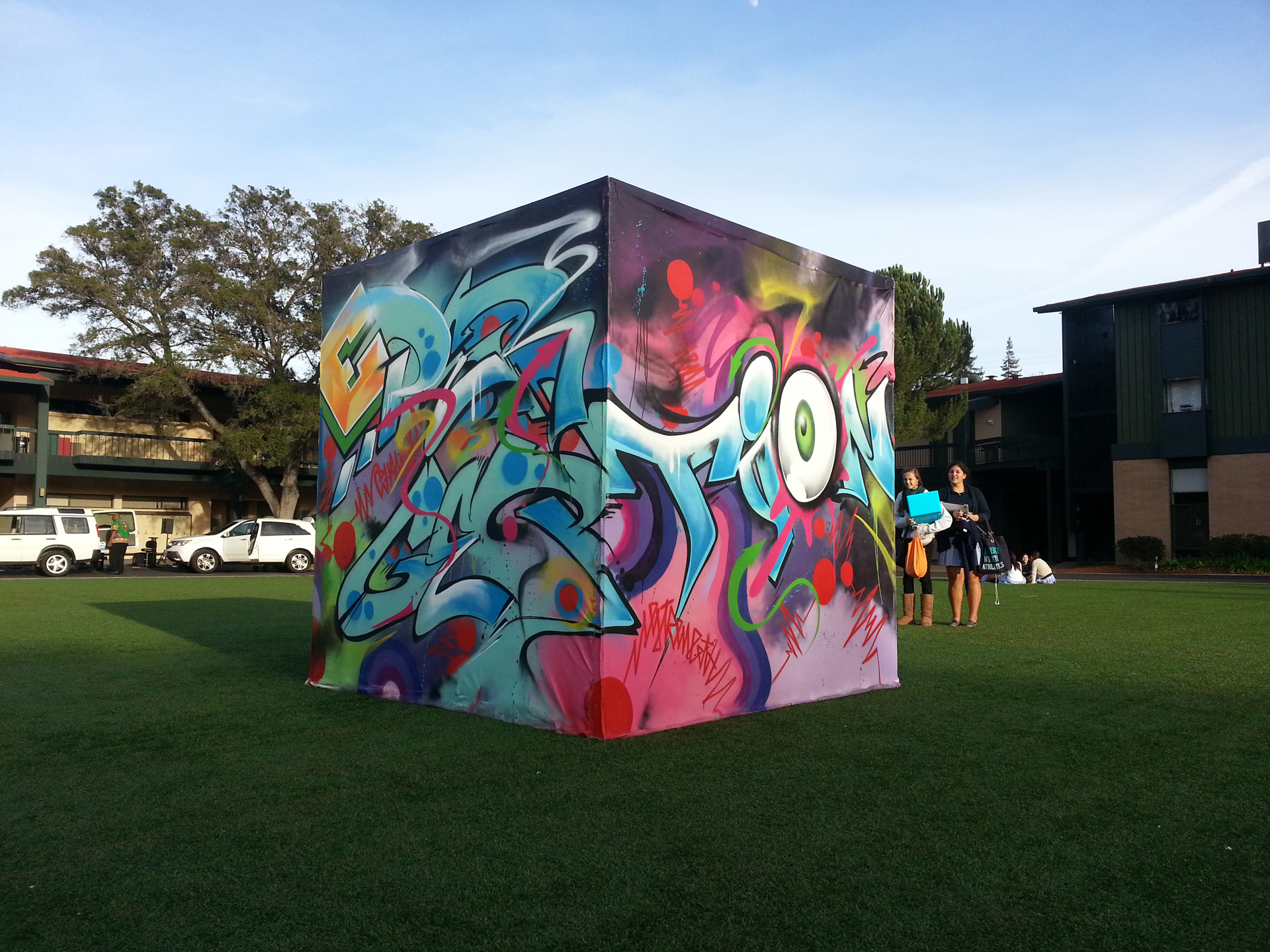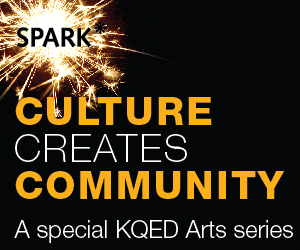Edward Martinez admits that when he was a boy growing up in Newark, N.J., the inside of his bedroom closet may not have been the best place to begin experimenting with graffiti. But the experience lit a spark. “It was like magic,” the artist remembers. “For me, graffiti art was the vehicle to give me my voice. Not so much to spread a political message — the message was that I was alive.”
Martinez named himself “Scape,” for Screaming Creative and Positive Energy. “Scape became my alter ego,” he says. “Scape was my superhero. Scape was everything that Edward wasn’t. Graffiti art allows you to do that in a way. Graffiti art allows you to leave the everyday and go out and wear that cape, if you will.”

Today, Martinez is wearing that cape proudly. Two decades after firing off that first, exhilarating blast from a spray can, his career is thriving, with public art commissions for murals across the Bay Area, speaking engagements, workshops, gallery exhibits and four books on graffiti art. Martinez has emerged as a leading voice advocating for the social relevance and importance of graffiti art. Recently, he worked with Stanford Law students in a graffiti art workshop aimed at examining whether art forms that push societal boundaries, like graffiti, can provide a vital role promoting awareness and social change.

Because graffiti art so impacted his own sense of self-worth growing up, Scape is committed to using its power to give voice to underserved youth, like those he mentors at the Mural, Music & Arts Project (MMAP), in East Palo Alto. Since its founding in 2001, MMAP has served thousands of young people who, among other activities, research, design and create public art projects. As MMAP’s Artist in Residence, Martinez works to give a sense of place and purpose to the youth of East Palo Alto through extended, hands-on, graffiti art workshops.

To those who see graffiti as vandalism, Martinez emphasizes that he teaches “the art of graffiti, not the act of graffiti.” He continues: “We teach that if you are going to paint a wall you must have permission. Period. We want to show the youth how to own their behavior, how to respect others and themselves, and to empower them to make better choices.”


